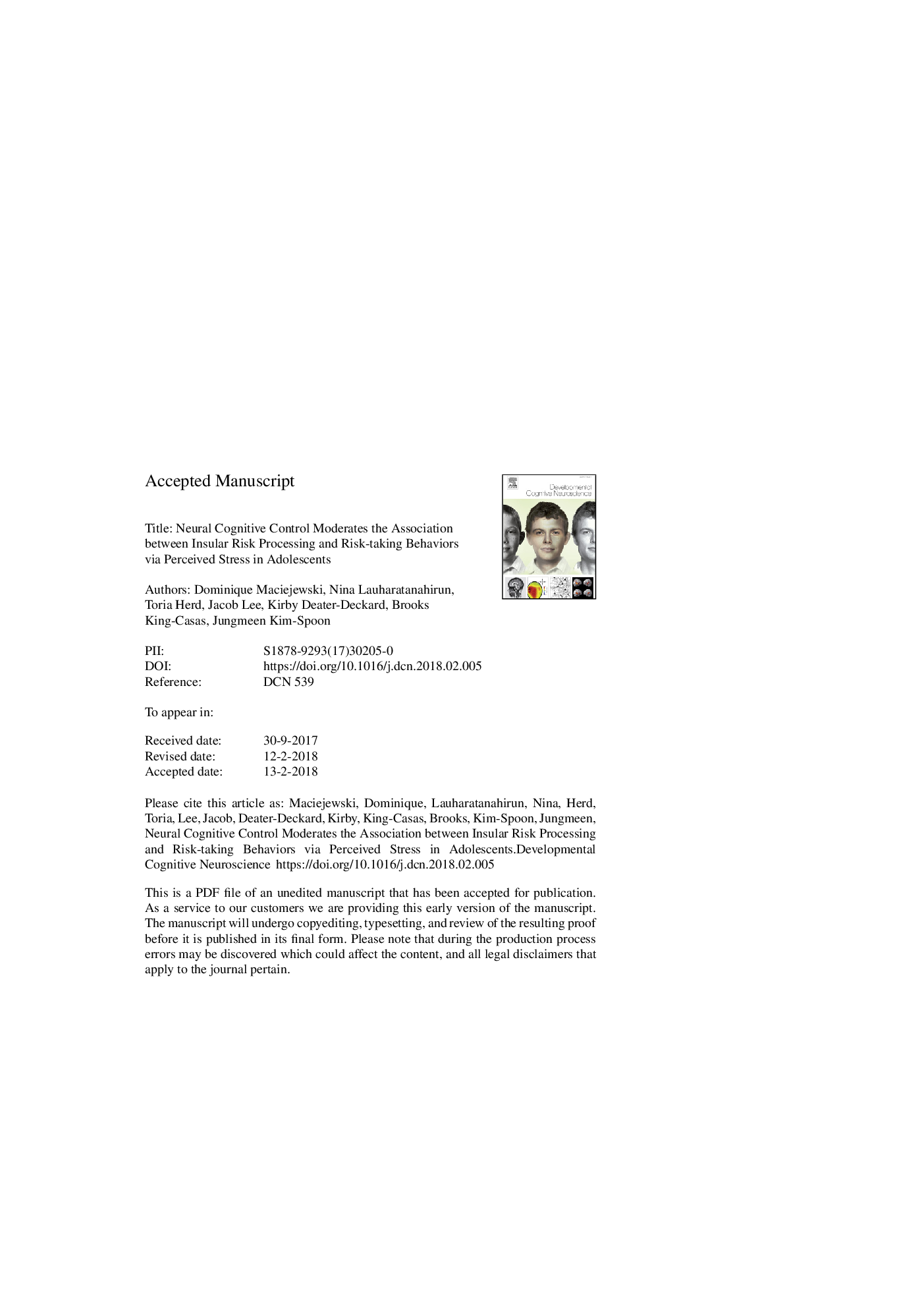ترجمه فارسی عنوان مقاله
کنترل شناختی عصبی ارتباط بین پردازش خطر جداسازی و رفتارهای ریسک پذیری از طریق استرس ادراک شده در نوجوانان را کاهش می دهد
عنوان انگلیسی
Neural cognitive control moderates the association between insular risk processing and risk-taking behaviors via perceived stress in adolescents
| کد مقاله | سال انتشار | تعداد صفحات مقاله انگلیسی |
|---|---|---|
| 116364 | 2018 | 34 صفحه PDF |
منبع

Publisher : Elsevier - Science Direct (الزویر - ساینس دایرکت)
Journal : Developmental Cognitive Neuroscience, Volume 30, April 2018, Pages 150-158

